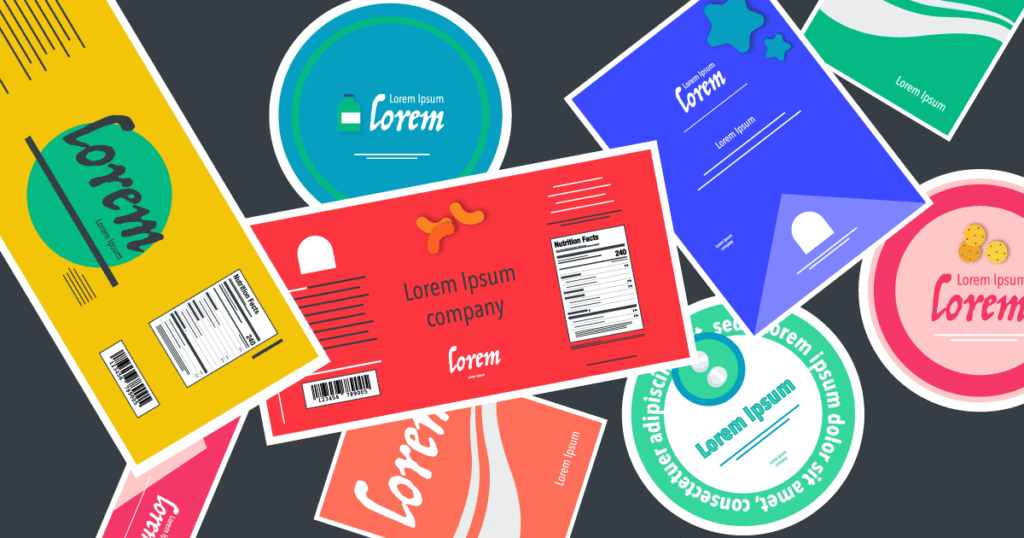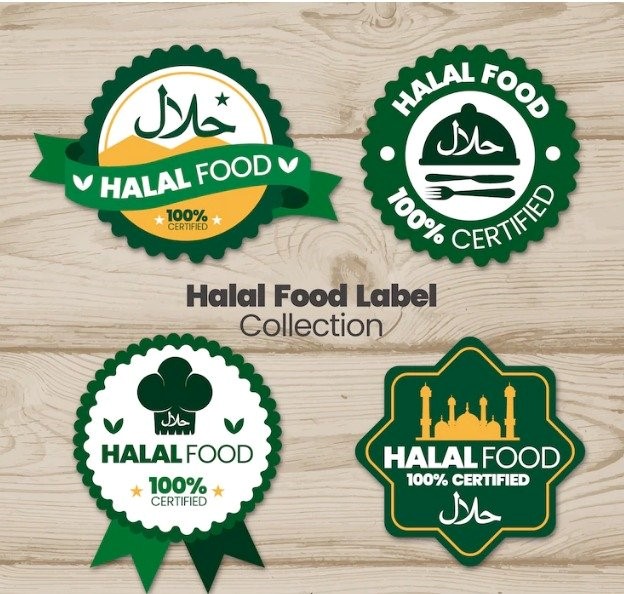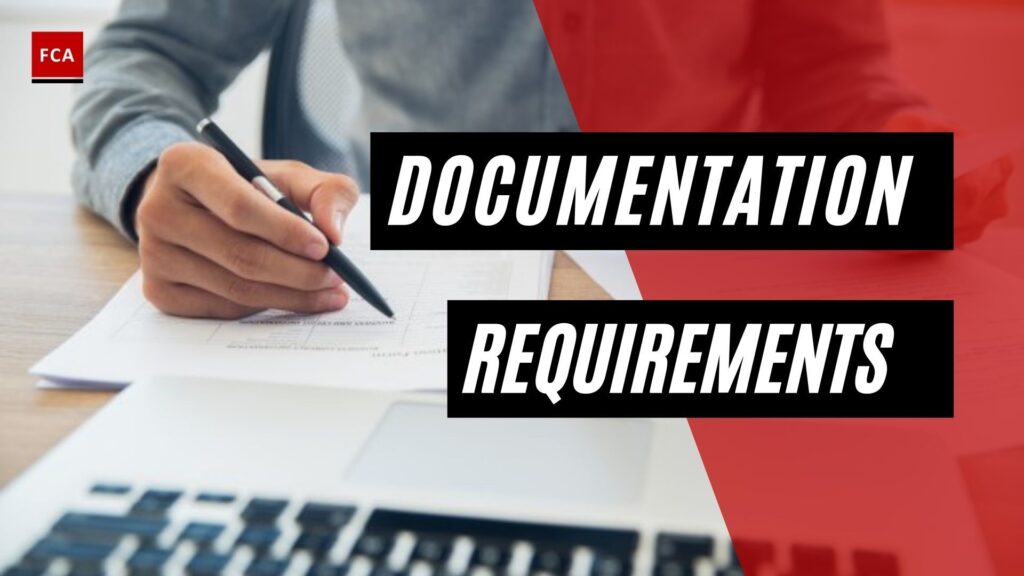Ensuring that food products meet labeling compliance Indonesia requirements is a critical step in the BPOM food registration process. Food manufacturers and distributors must adhere to strict guidelines, ensuring that packaging and labeling provide essential product information while fostering consumer trust. Food labeling Indonesia is governed by comprehensive regulations, including BPOM Regulation Number 31 of 2018, Regulation Number 16 of 2020, and Regulation Number 22 of 2019. These guidelines outline what information must appear on processed food labels and set clear standards for compliance.

The Importance of Food Labeling Compliance
Food labeling Indonesia is critical to the country’s regulatory framework for processed food products. Labels bridge manufacturers and consumers, providing vital information about a product’s composition, nutritional value, expiration dates, and origin. Proper labeling ensures that consumers can make informed decisions about the products they purchase and consume. Compliance with labeling compliance Indonesia standards is not just a regulatory requirement but a key factor in building trust. Companies adhering to BPOM’s guidelines demonstrate their commitment to transparency, safety, and quality. Labels that meet these standards help consumers identify products that align with their dietary preferences, religious requirements (such as halal certification), and nutritional needs. From a business perspective, meeting BPOM food registration requirements offers significant advantages. Proper labeling ensures a smoother registration process, minimizing the risk of delays or rejections caused by non-compliance. Furthermore, companies prioritising compliance avoid potential legal and financial repercussions, such as fines or product recalls. These preventive measures protect a company’s reputation and contribute to long-term sustainability in the highly competitive food market. For food manufacturers entering the Indonesian market, food registration Indonesia is a gateway to successful product distribution. However, this process is closely tied to strict labeling regulations. Transparent and accurate labeling is essential to avoid regulatory penalties and align with consumer expectations. Companies that fail to adhere to these standards may struggle to gain consumer trust, ultimately impacting their market performance.
Key Requirements for Food Labeling Indonesia
1. Product Name
A processed food label must include the product’s type and trade name. However, certain restrictions apply. Trade names must not contradict regulations, cultural norms, or public morality. They must also have distinguishing power, avoiding generic or misleading terms. For example, adjectives implying health benefits are not permitted unless substantiated.
2. List of Ingredients
The BPOM food registration process mandates the inclusion of a detailed list of ingredients. This must specify raw materials, food additives (BTP), and auxiliary substances used. If multiple ingredients are present, the percentage of the main raw material must be listed. Furthermore, visual elements, such as images of fruits or meats, can only appear on labels if these ingredients are part of the product’s raw composition and not merely additives.
3. Net Weight or Content
Labels must accurately state the net weight or content using standard measurement units. Solids are measured in grams (g) or kilograms (kg), liquids in milliliters (ml) or liters (l), and semi-solids can use either unit depending on their consistency.
4. Producer/Importer Information
The label must include the name and address of the producer or importer. This information is vital for accountability and traceability, and must include the city, postal code, and the country of origin.
5. Halal Certification
For products marketed in Indonesia, halal certification is mandatory unless otherwise specified. After obtaining certification, halal information must be prominently displayed on the label to assure compliance with labeling compliance Indonesia standards.

6. Production Date and Code
The production date and code provide critical traceability for food products. These details, including batch numbers or production timelines, must be displayed in a clear and legible format.
7. Expiration Date
An expiration date signifies the period during which a food product remains safe for consumption when stored as per instructions. The label must use the phrase “Best used before,” followed by the day, month, and year. Exceptions exist for certain products, such as alcohol-based beverages and bakery items with a short shelf life.
8. Distribution Permit Number
A valid circulation permit number is a non-negotiable requirement for processed food. For domestically produced goods, the label must state “BPOM RI MD” followed by a unique identifier, while imported products use “BPOM RI ML.” Household industry products must include “P-IRT.” This ensures compliance with BPOM food registration procedures.
9. Origin of Specific Ingredients
Processed foods containing ingredients derived from specific animal or plant sources must clearly indicate their origins. Products containing pork must display the phrase “CONTAINS PORK” along with a pictogram for transparency.
The BPOM Food Registration Process
Documentation Requirements
The BPOM food registration process is rigorous and demands extensive documentation to ensure compliance with Indonesian regulations. Companies must submit comprehensive details about their products, including specifications, ingredient lists, production methods, and proof of adherence to food labeling Indonesia standards. For instance, if applicable, product labels must accurately reflect all required information, such as nutritional content, expiration dates, and halal certification. Additionally, supporting documents like safety test results, import licenses, and certifications for specific claims (e.g., organic or gluten-free) are often required. These measures are in place to guarantee consumer safety and product transparency. Failure to provide complete and accurate documentation can result in delays, additional costs, or outright rejection of the registration application. Therefore, businesses must prioritize meticulous preparation to meet labeling compliance Indonesia and streamline the registration process.

Step-by-Step Registration
The BPOM food registration process is designed to ensure that all products entering the Indonesian market meet strict safety, quality, and labeling standards. Below is a breakdown of the key steps:
- Application Submission
The process begins with the submission of a complete application package through BPOM’s online portal. This package must include all required documents, such as product specifications, certificates, and labeling information, ensuring alignment with labeling compliance Indonesia guidelines.
- Review and Evaluation
BPOM conducts a detailed review of the submitted materials to verify compliance with Indonesian regulations. This includes checking labels for adherence to food labeling Indonesia standards, assessing ingredient safety, and evaluating production methods. Errors or inconsistencies at this stage can lead to significant delays or rejections.
- Inspection
Depending on the nature of the product and the manufacturing process, BPOM may carry out on-site inspections. These inspections ensure that production facilities comply with hygiene and safety standards and that all ingredients and processes are traceable.
- Inspection
- Approval and Permit Issuance
Once the application passes all reviews and inspections, BPOM issues a circulation permit number. This number is a mandatory component of the product label, signifying that the product has met all regulatory requirements under food registration Indonesia standards. With this permit, the product can officially enter the Indonesian market.
Deadlines and Timelines
The timeline for BPOM food registration varies depending on factors such as product complexity and the completeness of the application. On average, the process takes between 3 to 6 months. However, delays are common, often caused by incomplete documentation or non-compliance with food labeling Indonesia regulations. For example, missing halal certification or unclear ingredient listings can significantly prolong the review phase. Companies should plan proactively to account for potential delays and ensure that all documentation is thorough and accurate. Investing time in understanding labeling compliance Indonesia and consulting with experts can prevent setbacks and facilitate smoother registration.
Common Challenges in Meeting BPOM Standards
While BPOM regulations are clear, many companies face difficulties achieving compliance, which can delay or derail the food registration Indonesia process. These challenges stem from various aspects, including labeling, documentation, and certification requirements.
- Mislabeling Issues
One of the most common challenges involves mislabeling products. Misrepresentation of product names, health claims, or ingredient lists often leads to application rejection. For example, labeling a product with unverified claims such as “boosts immunity” without supporting scientific evidence violates labeling compliance Indonesia regulations. BPOM strictly enforces honest and accurate labeling to ensure consumer safety and prevent misleading information. Addressing these issues requires businesses to invest in precise labeling practices that adhere to food labeling Indonesia standards.
- Ingredient Declaration
Another frequent hurdle is the failure to declare ingredients accurately. BPOM mandates that labels include percentages for main ingredients, especially when marketing visuals (such as images of fruits or meats) are used. Misrepresentation or omission of these details can lead to non-compliance. Businesses must ensure that their ingredient lists align with labeling compliance Indonesia guidelines to avoid setbacks in the BPOM food registration process.
- Halal Certification Delays
For companies targeting Indonesia’s predominantly Muslim consumer base, obtaining halal certification is crucial. However, this certification process can be time-intensive, often causing delays in food registration Indonesia timelines. Coordination with halal certification bodies, combined with meeting BPOM’s additional requirements, demands meticulous planning. Businesses must start the certification process early to avoid bottlenecks.
- Lack of Documentation
Incomplete or incorrect documentation remains a leading cause of registration delays. BPOM requires a comprehensive set of documents, including production specifications, test results, and compliance certifications. Overlooking any of these requirements can result in lengthy reviews and potential rejection. Companies must invest in thorough documentation preparation to meet BPOM food registration requirements.
- Packaging Design Flaws
Poorly designed packaging often fails to include essential information such as expiration dates, distribution permit numbers, or nutritional facts. Such errors necessitate redesign and re-submission, further delaying product launches. Businesses should ensure that their packaging complies with food labeling Indonesia regulations from the outset to avoid these issues.
Importance of Transparent Packaging
Transparent and accurate packaging is vital for fostering consumer trust and meeting labeling compliance Indonesia standards. When labels adhere to BPOM food registration requirements, consumers are assured of a product’s safety, quality, and authenticity. This is particularly important in Indonesia’s highly competitive food market, where buyers often rely on labels to make informed purchasing decisions. Well-labeled products that highlight essential details such as nutritional content, expiration dates, and halal certification not only comply with food labeling Indonesia rules but also resonate with health-conscious and religious consumers. These features can significantly boost brand credibility and loyalty.
Conclusion
Packaging and labeling compliance is a cornerstone of the BPOM food registration process. Adhering to food labeling Indonesia standards not only ensures legal compliance but also fosters consumer trust and market credibility. By understanding the requirements for product names, ingredient lists, expiration dates, and distribution permits, companies can navigate the regulatory landscape effectively. Transparent labeling, coupled with a thorough registration process, positions food products for success in Indonesia’s dynamic market. Investing time and resources into compliance with labelling compliance in Indonesia is not just a regulatory necessity, it’s a strategic advantage that builds consumer confidence and drives business growth. For manufacturers looking to succeed in the Indonesian market, there is no substitute for thorough preparation and adherence to BPOM food registration guidelines.
What are the key requirements for food labeling compliance in Indonesia?
Food labeling in Indonesia must include the product name, detailed ingredient lists, net weight or content, producer/importer information, halal certification (if applicable), production date, expiration date, and BPOM distribution permit numbers. These details ensure transparency and regulatory compliance.
Why is halal certification important for food labeling in Indonesia?
Halal certification is crucial for products targeting Indonesia’s predominantly Muslim population. Labels must prominently display halal certification to comply with BPOM regulations and assure consumers that the product meets Islamic dietary laws.
What is the role of BPOM in food labeling compliance?
BPOM (Indonesian Food and Drug Authority) regulates food labeling to ensure products meet safety, quality, and transparency standards. It oversees the BPOM food registration process, mandates essential label information, and conducts inspections to protect consumers.
What are common challenges in meeting BPOM food labeling standards?
Challenges include mislabeling, incomplete ingredient declarations, delays in obtaining halal certification, insufficient documentation, and packaging design flaws. Companies must thoroughly understand BPOM regulations and prepare meticulously to avoid these setbacks.


